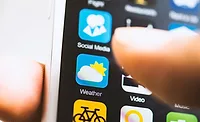Consumers Concerned with Losing Access to Medications Amid Disasters
A new international survey of 13 countries by Healthcare Ready shows significant concern among patients about losing access to prescription medication during disasters.
The survey also found that most respondents have confidence in their government when it comes to responding to disasters and providing access to medications. The poll was conducted by international polling firm YouGov for Healthcare Ready, a Washington D.C.-based non-profit that works with the public and private sector to address healthcare resiliency before, during and after disasters.
“The key to effective risk communications is understanding various patient needs and perceptions across the globe,” said Nicolette Louissaint, PhD, executive director of Healthcare Ready. “As the Global Health Security Agenda approaches its fifth anniversary and first renewal in 2019, a distinct knowledge gap has emerged regarding patient perspectives. Particularly, this survey helped uncover patient perspectives on obtaining medication and care, preparedness, and health security, which are largely unmeasured and overlooked in country-level assessments.”
When asked how long they could go without access to medication before experiencing negative effects, the survey found many respondents would begin experiencing adverse effects within days:
- One day or less= nearly 9 percent
- Up to four days = 24.9 percent
- Up to six days = 33.5 percent
- Within a week: 42 percent
- Up to a month: 54 percent
- Up to a month of longer: 80.8 percent
The vast majority of people in all countries surveyed (Canada, the United States, Mexico, Brazil, the United Kingdom, France, Germany, Uganda, South Africa, India, Vietnam, Indonesia, and Malaysia), indicated they would experience significant effects after a month or more without their regular medications or medical equipment.
Exactly 70 percent of patients in all countries surveyed reported that they are likely to seek a flu vaccine for themselves or a loved one, and 73 percent reported that they are likely to go to a doctor if they suspect that they or a loved one have the flu. The survey also uncovered that 43 percent of respondents felt government (local and national) was most responsible for ensuring medicines are available during a personal medical emergency.
Looking for a reprint of this article?
From high-res PDFs to custom plaques, order your copy today!







